Who's Who In Henry VI
There are a lot of characters in Shakespeare's history plays, and we know it can be tough to keep them straight. So here's a brief "Who's Who" of some of the key players in the show.
See a family tree for the main characters here
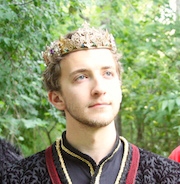
Henry VI is the only son of Henry V and Katherine of France. He became king at a very young age when his father died, so his uncle Humphrey of Gloucester was appointed Protector over him.
Henry is unlike anyone else in the play. He is a simple, deeply religious man who abhors conflict and only wants to ensure peace and harmony among his subjects. He may be the only character in the play who does not want to be king — in one famous speech, he longs for the simpler life of a shepherd. This attitude causes other members of the court to perceive him as weak and unfit to be king, and much of the action of the play involves other characters trying to control Henry, prevent others from exerting influence over him, or take the crown away from him.
There are two moments in the play, however, when Henry stands up against those who would try to control his actions: when he chooses the woman he will marry, and when he banishes the Duke of Suffolk — perhaps at least in part because of Suffolk's relationship with the woman Henry chose to marry...
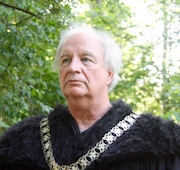
Humphrey, Duke of Gloucester is the youngest brother of Henry V and the uncle of Henry VI. When his brother died and Henry VI became king at a very young age, Gloucester was appointed Protector over the king.
These factors make him the most powerful man in England at the beginning of the play: as Protector, he has the greatest influence over the young king and is, in effect, the person really running the country. And as the brother of Henry V, Gloucester would be next in line to take the throne if anything were to happen to Henry VI.
Gloucester's power and influence make him a target for the other members of the court who are seeking to increase their own power and influence. The middle of our show is largely concerned with the way Gloucester's enemies, who otherwise would be fighting each other, band together to manufacture treason charges against Gloucester and have him removed from his position.
Gloucester himself is strongly devoted to the young king he serves and is beloved by the common people, who revere him for his devotion to the king and for the fact that he is the brother of Henry V.
Gloucester has a long-running feud with Cardinal Winchester...

Cardinal Winchester, Henry Beaufort, is one of many illegitimate children of John of Gaunt. Though these Beaufort children were later made legitimate when John of Gaunt married his longtime mistress, they were still regarded as bastards by many of the other members of the royal family.
Winchester's position as a high-ranking member of the Church gives him a certain amount of power and status in the court, but it also makes others mistrust him — they fear the influence of the Church hierarchy in Rome over him.
His religious office certainly doesn't prevent him from seeking power by worldly means: Winchester is one of the key conspirators against his longtime nemesis, the man who actually has the power Winchester covets, Humphrey of Gloucester. It may be that his religious convictions get to him in the end, however, as his guilt over Humphrey's death drives him to the brink of madness...
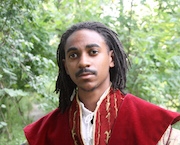
The Duke of Somerset, John Beaufort, is descended from another illegitimate son of John of Gaunt. One of the key supporters of Henry VI and the house of Lancaster, Somerset is also a strong opponent of Richard Plantagenet, the Duke of York.
Somerset and York were major rivals for positions of power in the court and for leadership of the English forces in France. The scene in which the Somerset-York feud first flares up — in the garden of the Inner Temple, one of the main law centers of London, where York and Somerset are arguing over some legal point — gave the name to the Wars of the Roses, as each of them asks the other courtiers to pluck white or red roses to signify their support for one or the other.

The Duke of Suffolk, William de la Pole, is one of the few key players at the court who is not a member of the royal family. The de la Poles were a wealthy merchant family who rose to power by providing financing to England's kings for their wars, beginning with Edward III. Suffolk is therefore "new money" to the other members of the court, looked down upon and resented as he climbs the ladder to power.
Knowing that he has no path to the throne himself, Suffolk comes up with another way to gain power: by convincing Henry VI to marry Margaret, and then exerting influence over her. Along the way, he and Margaret fall in love — not particularly convenient, since both of them were married to other people — and work together to engineer Duke Humphrey's downfall.
Coming Up Next: The House Of York
Summer 2016:
Twelfth Night
Henry VI: A Tiger's Heart
"The very best summer thing."
— Warren Greenwood, Ithaca Times
This summer, we'll be pairing the next-to-last installment in our history series with one of Shakespeare's richest and best-loved romantic comedies. All performances at Allan H. Treman State Marine Park, on Route 89 behind the Hangar Theatre.
Twelfth Night
July 7, 10, 14, 16, 22, 24 at 6 pm
Tickets on sale now!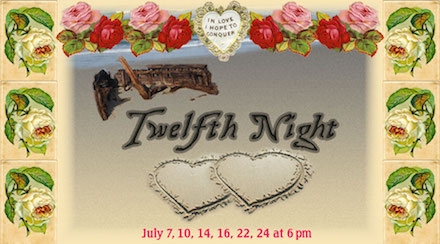
An exploration of love in all its forms, the crowning glory of Shakespeare's romantic comedies is a richly layered and endlessly entertaining play. Hilariously funny and deeply romantic, Twelfth Night features: a shipwreck, a clever heroine in disguise, twins that no one can tell apart, multiple cases of mistaken identity, a lovesick count, a lovesick countess, a pair of drunken pranksters, a duel (sort of), a pair of yellow stockings, a pirate, a fool, a madman, a bunch of lovers, a bunch of songs, one of the greatest practical jokes in all of literature, and a whole lot of smiling!
Henry VI: A Tiger's Heart
July 8, 9, 15, 17, 21, 23 at 6 pm
Tickets on sale now!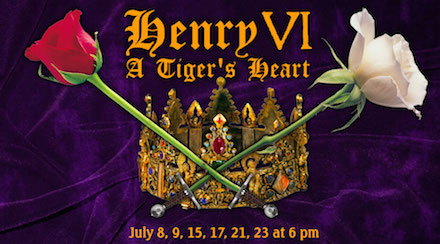
When Henry V dies and leaves his young son on the throne, the divisions in the kingdom break open and England erupts into civil war. The Wars of the Roses pit the house of Lancaster against the house of York — one led by one of Shakespeare's most formidable women, and the other driven by the ominous rise of the future Richard III.
Drawing on material from all three parts of Shakespeare's Henry VI, this sweeping epic features the first appearance of Richard III, two of Shakespeare's strongest women in Queen Margaret and Joan of Arc, the scene that gave birth to the phrase "the Wars of the Roses," a popular rebellion with the slogan "Let's kill all the lawyers!", and some of the most thrilling and intense conflicts that Shakespeare ever created.
The game of thrones heats up to boiling point in this show, so put it on your calendars now!
Get tickets now!
The Ithaca Shakespeare Company · Ithaca, NY 14850 · info@ithacashakespeare.org
